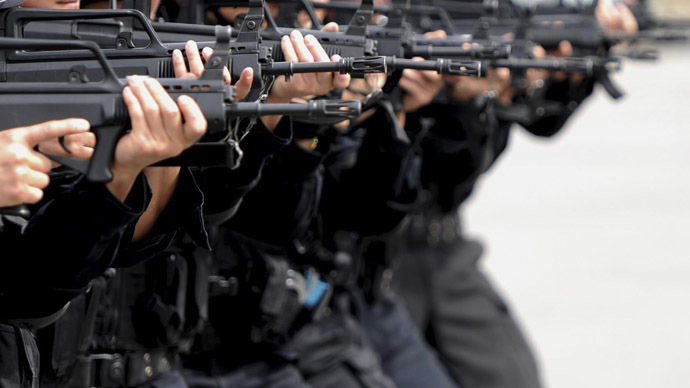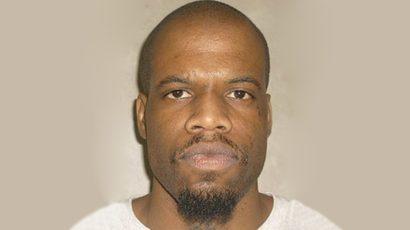‘More humane’: US Senator proposes return of firing squads to execute criminals

A Republican senator is advocating the use of firing squads as a form of execution in the USA, after a botched lethal injection in Oklahoma in April. Paul Ray from Utah says his proposal would be a more humane form of execution.
The Republican plans to introduce his suggestion at his state’s next legislative session in January. Similar plans have been floated in Wyoming and Missouri, but were never passed. However, the senator from Utah may have better luck in trying to get his bill passed as the state has a history of using fire arms for executing criminals.
In 2010, Ronnie Lee Gardner was put to death, with five police officers using .30 caliber rifles, which was the last execution to take place in Utah. "It sounds like the Wild West, but it's probably the most humane way to kill somebody," Ray said, speaking to the Associated Press.
Utah had eliminated the use of fire squads to carry out executions in 2004. However, those given the death penalty before that date had the option of choosing it. Gardner, who was sentenced to death for shooting a Salt Lake City lawyer in 1985 decided on this option.
He became the third person to die by firing squad since the US supreme court reintroduced the death penalty in 1976, following the Gregg v Georgia ruling. Since its reinstatement, lethal injection has been the most common use of carrying out the death penalty; however, it has come under criticism in recent months.
Persistent shortages of traditional barbiturates have led states to experiment with different combinations of lethal drugs, sometimes with grotesque consequences.
In the most recent high profile case, Clayton Lockett’s vein collapsed and he died of a heart attack more than 40 minutes after being administered a lethal injection.
Therefore Ray is proposing the use of firing squads, which will also be much cheaper and says, "The prisoner dies instantly. It sounds draconian. It sounds really bad, but the minute the bullet hits your heart, you're dead. There's no suffering."
"There's no easy way to put somebody to death, but you need to be efficient and effective about it," Ray said. "This is certainly one way to do that."
Opponents of the proposal say firing squads are not necessarily a foolproof answer.
"It's possible an inmate could move or shooters could miss, causing the inmate a slow and painful death," said Richard Dieter, executive director of the Washington, DC based Death Penalty Information Center, which opposes capital punishment.
"The idea is that it would be very quick and accurate but just a little movement by the person could change that," he said. "Things can go wrong with any method of execution."














